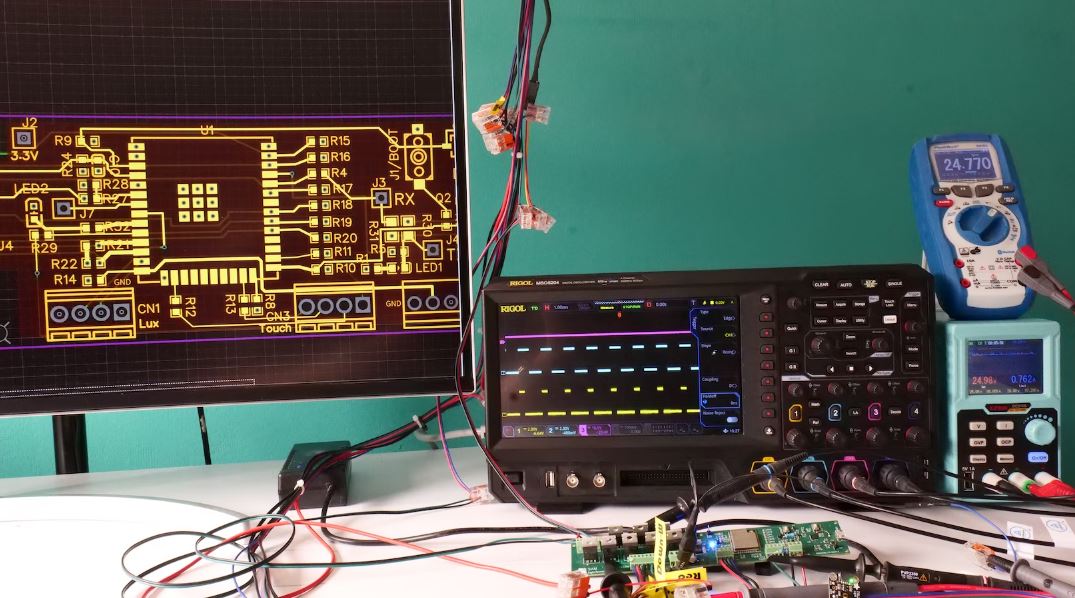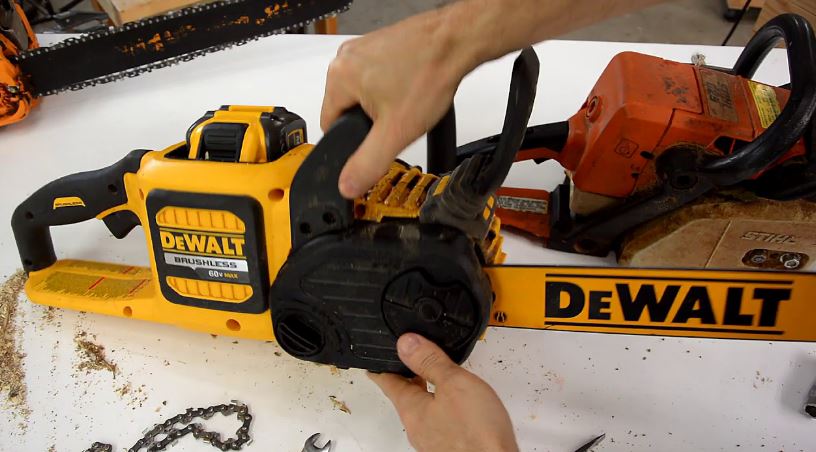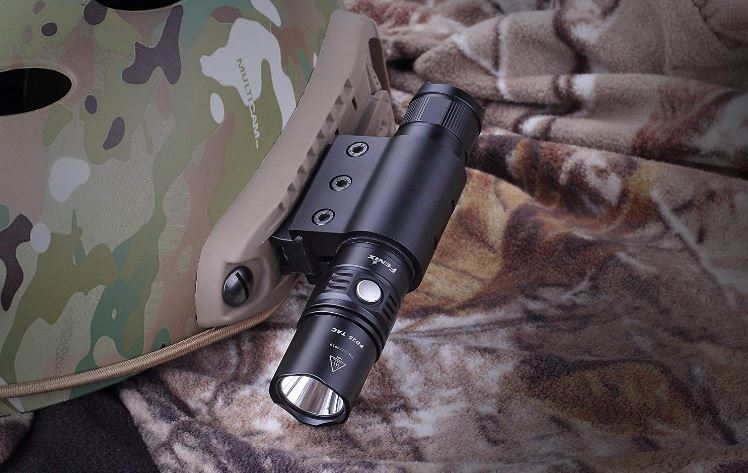An electronic lab can only have so many tools ranging from wire cutters and pliers to multimeters and voltmeters. The thing is, however, if you are just rounding up the tools to have in your electric lab, you cannot really be able to get everything and this calls for you to know of what the essentials are.

Not to be understood however, the tools that I have included in this list are the must-haves but this doesn’t mean that any other tools should be overlooked.
Over the years, electrical tools have evolved and most of them have been a step up to some basic hardware tools while others are aimed at performing a specific task.
Either way, you don’t need to spend a fortune to get these; provided they’re safe enough and up to the task of how much you’ll be doing, they should be good enough.
So, how about we cut to the chase and see which are the must-have 7 tools for any electronic lab?
Electronic lab tips
Regardless of whichever tools you have in your electronic lab, there are some things you ought to pay attention to in order to ensure your lab is in perfect condition.
- Always clean up your workbench after you are done.
- Be sure to turn off electrical measurement instruments after you’re done using them.
- Lubricate the moving parts of tools such as screwdrivers
- After use, be sure to store away all tools as per the manufacturer’s instructions
See also: 11 Best Soldering Irons (For electronics & circuit boards)
The 7 must-have tools for any electronic lab
On to the main agenda, let’s find out which tools should be in your electronic lab. Depending on whichever your application is, either of these will come in handy well enough.
1. A digital multimeter
Like most electronic and electrical equipment, there are quite a lot of multimeters out there such as electronic multimeters, automotive multimeters, and clamp multimeters. There are more or fewer differences between all of these but at the end of the day, you want something that’s going to handle whatever you throw at it.
The main measurement you should expect on the best digital multimeter includes AC and DC voltage, resistance, and continuity measurements among others.
In most cases, multimeters are used when designing electrical circuits and/or troubleshooting existing ones. In addition to this, they have been perfected over the years to handle other measurements such as temperature measurement, and non-contact voltage measurements and some also come with probe tips.
Depending on the type of multimeter you get and the features it has, you may pay as little as $7 and as much as $150. So, I cannot emphasize enough on the importance of going for what you really need. The last thing you want is to get a bang for your buck for what you really need.
2. Rotary tools
Other than a multimeter, this is yet another versatile tool you should have in your electronics lab. Similar to any other tool you have in your lab, these too do come at different prices and as such, it’s important that you narrow down your options to what you really need.
A rotary tool is mostly used when cutting square holes in plastic boxes, drilling holes through a printed circuit board, trimming a PCB that is slightly large so that it’s able to fit into the enclosure it’s intended to be in, etc.
Rotary tools also come with different attachments all of which can be purchased as kits from home improvement centers and hardware stores. Though you could work with lots of attachments, I’d recommend that you stick with the miniature cut off discs, sanding drums and cutting tips for electronic applications
You should always have in mind to go for the same size shafts size for all the attachments since going for a larger one will not fit in the rotary tool. You should also stick to using it only on drilling soft materials such as PCBs since using it on harder materials would burn it out.
See also: What is Raspberry Pi? ( Linear Actuator Controller )
3. Oscilloscopes
There is no way this one could miss out on our list. If you do know anything about electronics, then you do know that everything comes down to signals and the oscilloscope just so happens to be the primary tools in the measurement and observation of signals.
Let’s see what they are all about…
Otherwise known as oscopes or just scopes, they normally have a display in graphical format in a pair of ax7es (the X and Y). The Y axis is normally used to indicate voltage readings whereas the X-axis is used to indicate the time. Oscilloscopes are normally both a quick, powerful and accurate way to measure signal shapes.
So, if you want to know exactly what is going on in an electric circuit, then this is definitely a must-have tool. Similar to the multimeter and rotary tools, these too are available in two different variants- either digital or analog oscilloscopes. Most are quite affordable but if you want some really advanced functions, you will have to spend thousands of dollars.
I’d recommend that you go for the digital oscilloscopes as they have lots of functions such as peak-to-peak voltage, pulse width measurement, peak-to-peak voltage, rise times, signal comparisons and more.
4. Optic tools
Ever had a look at a motherboard? Some components are so small that it’s difficult or rather impossible to be able to hold them with a pair of tweezers or even see them.
If you will be working with such, then you’ll want to have some basic lab optics. This could be magnifying loupes or even large magnifying lenses. The thing with these, however, is that the magnification can only go as far as 5-10x which is not that impressive but if you’re all about basic laboratory functions, then these will come in handy well enough.
For advanced users, such as when you need a surface mount assembly or inspection of electronic equipment, then it would be a good idea to get yourself a stereomicroscope. This normally has got a magnification level of between 25x and over 90x which is quite impressive.
Stereomicroscopes are perfect for use in board-level inspection and soldering surface mount chips but as convenient as they are, you should be ready to spend a few hundred bucks on them. Depending on whether or not they have a fixed or variable zoom, you’ll have to pay more or less.
5. LCR Meter
Similar to multimeters, the LCR meters have got quite a wide application as well. they are normally recommended in the measurement of inductance (L), Capacitance (C), and resistance (R) hence the name LCR meter.
With these too, you will have options to choose from. First, there is a variant that will measure the total impedance of an electrical component and with these ones, you won’t have to spend a lot of cash at all. There is, however, a more expensive type that not only measures the equivalent impedance but is also able to measure Equivalence Series Resistance (ESR) as well as the components Quality factor (Q).
If you need to have more accuracy from your LCR meter, you’ll have to spend more cash since the low-priced ones have got accuracy tolerances that as high as 20% which can make quite a difference.
6. Power supply
Now here’s something that you really can’t get along without in your electronics lab. It’s quite obvious that there’s no way you could be able to test a circuit without applying power to it.
There are plenty of power supplies present in the market allow which are designed with different features. In a general-purpose laboratory, for instance, the most important must-have features on your power supply include variable current and voltage control.
A power supply basically allows you to supply different voltages for different applications and most of these can operate on either a constant voltage or current mode. This makes it much easier to troubleshoot different components or even a part of your electronic design and much quicker as well.
See also: Explain The Working Mechanism of An Uninterruptible Power Supply
7. Mechanical tools for precision operations
You’ll also want to have some mechanical tools in your electronic lab. These will be useful in making basic tasks a walk in the park and making the more complex ones a walk in the park.
Some of these include wire cutters, a pair of t ESD-safe tweezers, precision screwdrivers, wire strippers, alligator clips and leads for your multimeter, sheer cutters, needle nose pliers, and more. at the end of the day, you should consider getting either of these depending on how much you look forward to doing on your workbench.
Final Verdict
With all the tools mentioned above in your electronics lab, it will be quite a good enough start. If you are a hobbyist, you don’t really have to break the bank for really advanced features but otherwise, it would be a good idea to get the best of everything in order to avoid future costs. Above all else, remember to observe utmost care and maintenance in handling all your electronic measurement equipment.



